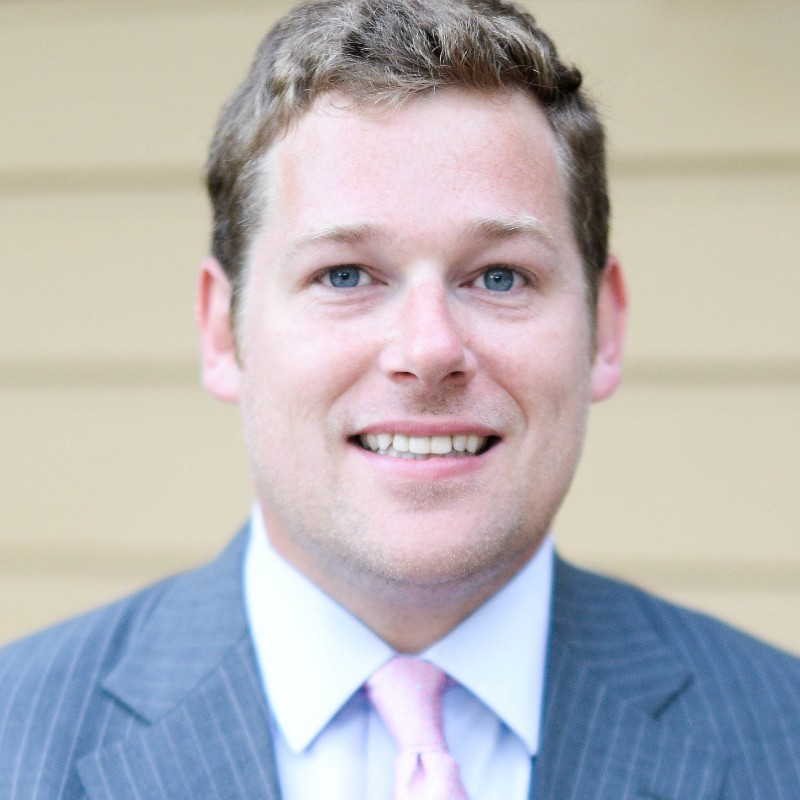Jonathan Stroud is General Counsel at Unified Patents, where he
manages a growing team of talented, diverse attorneys and oversees a
docket of administrative challenges, appeals, licensing, pooling, and
district court work in addition to trademark, copyright,
administrative, amicus, policy, marketing, and corporate matters.
Prior to Unified, he was a patent litigator, and prior to that, he was
a patent examiner at the USPTO. He earned his J.D. with honors from
the American University Washington College of Law; his B.S. in
Biomedical Engineering from Tulane University; and his M.A. in Print
Journalism from the University of Southern California. He enjoys
teaching, writing, and speaking on patent and administrative law and
litigation finance.
Unified is a 350+ international membership organization that seeks to
improve patent quality and deter unsubstantiated or invalid patent
assertions in defined technology sectors (Zones) through its
activities. Its actions are focused broadly in Zones with substantial
assertions by Standards Essential Patents (SEP) holders and/or
Non-Practicing Entities (NPEs). These actions may include analytics,
prior art, invalidity contests, patentability analysis, administrative
patent review (IPR/reexam), amicus briefs, economic surveys, and
essentiality studies. Unified works independently of its members to
achieve its deterrence goals. Small members join for free while larger
ones pay modest annual fees.
Below is our LFJ Conversation with Jonathan Stroud:
1) Unified Patents describes itself as an "anti-troll." You claim to
be the only entity that deters abusive NPEs and never pays. Can you
elaborate?
In the patent risk management space, Unified is the only entity that
works to deter and disincentivize NPE assertions. Because of the
expense and economics of patent litigation, parties often settle for
money damages less than the cost of defending themselves, paying the
entity, often for non-meritorious assertions. This allows them to
remain profitable, thus fueling and incentivizing future assertions,
regardless of merit. Unified is the only solution designed to counter
that dynamic. That is why Unified never pays NPEs. This ensures that
Unified never incentivizes further NPE activity. By focusing on
deterrence, Unified never acts as a middleman, facilitating licensing
deals between NPEs and implementors.
2) How does Unified Patents work with litigation funders, specifically?
As many NPE suits are funded or controlled by third parties, we are
often called to consult on and seek to understand litigation funding
and the economics of assertion. Among other things, we provide filing
data, funding information, reports, and other work related to funding
and also run a consulting business related to negotiations and aspects
of dealmaking affected by litigation funding. For example, we have
helped identify that at least 30% of all U.S. patent litigation filed
in recent years has been funded (up through 2020), through one
mechanism or another. We will continue to work to understand the
marketplace and transactions, and endeavor to provide the best insight
into the marketplace that our data affords.
3) With Judge Connolly's recent ruling, disclosure has become a hot
topic in the US. How do you see this ruling impacting IP litigation
going forward?
Well before Chief Judge Connolly's actions, litigation funding
disclosure has been a topic of discussion at the judicial conference,
among other judges, and amongst those implementing and revising the
Federal Rules of Civil Procedure, not to mention Congress and the SEC.
The Judicial Conference has been called to revise the disclosure rules
for over a decade. Similar disclosure orders or rules applied in New
Jersey, California, Michigan, and another dozen district courts
nationwide, in addition to numerous rulings on admissibility and
relevance in Federal and state courts stretching back decades. Chief
Judge Connolly's order has attracted outsized interest in the patent
community in particular. It quickly exposed some of the 500 or so
cases filed annually by IP Edge as funded, as well as the high number
of patent plaintiffs in Delaware. Calls for disclosure did not begin
with Judge Connolly; has been a continuing ongoing debate stretching
back decades. Insurance disclosures go back to the early 70s, and
other types of loans or financial instruments are already subject to
certain disclosure rules, in court, governmentally, or by regulators.
Moving forward, the increasing prevalence of litigation funding and
the rising awareness among the judiciary and bar will mean fitful
district-specific under- and over-disclosure until a national rule is
put in place through the Federal Rules of Civil Procedure. It's
inevitable. It's just a matter of time.
4) Insurers seem to be shying away from judgment preservation
insurance at the moment--is this a trend you see continuing, and how
might this impact IP litigation?
Insurance markets are often dominated by sales-side pressures and so
are susceptible to irrational exuberance and overpromotion of certain
policies. Couple that with competition amongst brokers to offer
attractive terms for a "new" product, and you have pressures that have
driven down offered rates, a trend that seems to be reversing itself
now. To be sure, judgment preservation has existed in some form for
many years through other funding and insurance sources, and you've
always been able to buy and sell claims and judgments on appeal.
The increased emphasis on judgment preservation insurance seems driven
by a handful of brokers successfully selling rather large policies,
coupled with a glut of interest; my understanding is that some of the
recent (and predictable) remand on appeal have dampened
the enthusiasm of that market a tad, but that really just means rates
returning to reasonable levels (or at least growing resistant to
sales-side pressure). The small JPI market should stabilize,
affording successful plaintiffs the option, and in turn extending
appellate timelines and recovery timelines, especially in
higher-profile damages award cases. It will generally prevent
settlements below the insured threshold. It should also provide some
incentive to sue and to chase large damages awards in the first place,
if it becomes clear that JPI will be available after a judgment,
allowing for less well-capitalized plaintiffs to recover earlier and
avoid binary all-or-nothing outcomes.
Additionally, the Federal Circuit and other appellate courts will
eventually grapple with the "disclosure gap." That is, the Federal
Rules of Civil Procedure insurance policies since the 1970s must be
disclosed at the trial level, but not yet at the appellate level; but
the same concerns that animated the 1970 amendments to the FRCP now
apply on appeal, with the rise of JPI. Circuits will have to
grapple with adopting disclosure rules for insurance policies
contingent upon appeal.
5) What trends are you seeing in the IP space that is relevant to
litigation funders, and how does Unified Patents' service fit into
those trends?
Early funding stories were dominated by larger cases and portfolios,
but we are now seeing a trend of much smaller cases being funded, and,
in the case of both IP Edge and AiPi Solutions, with certain patent
aggregators getting creative and funding entire suites of very small
nuisance cases. We see funding now at all levels, from the IP Edges
of the world to the Burfords, and there is a trend toward investing in
pharmaceutical ANDA litigation and ITC cases. Both should continue,
which should extend cases, increase the duration and expense of
litigation, and should drive more licensing. Unified will continue to
seek to deter baseless assertions and will continue to identify,
discuss, and detail the structures, funding arrangements, and suits
related to litigation funding, and continue to show how much funding
is now dominating U.S. patent litigation, to the extent it is knowable.





























